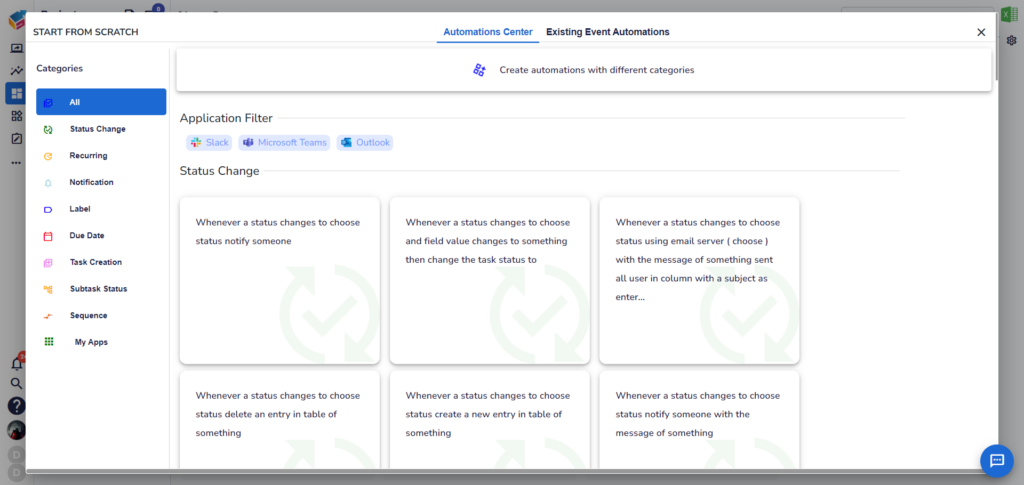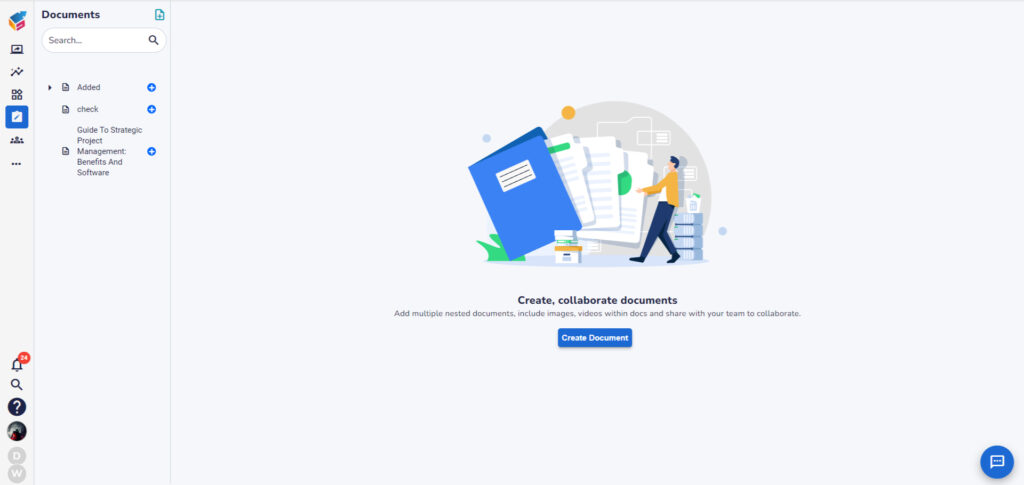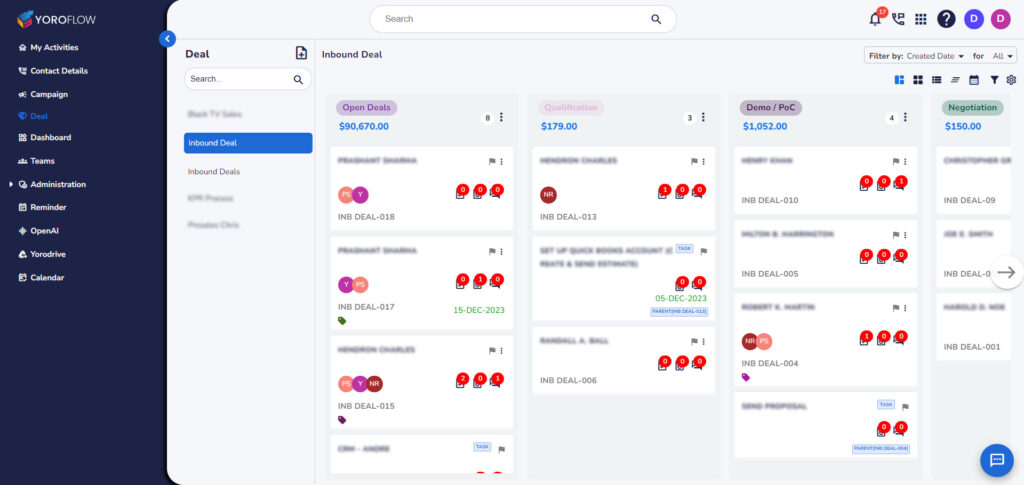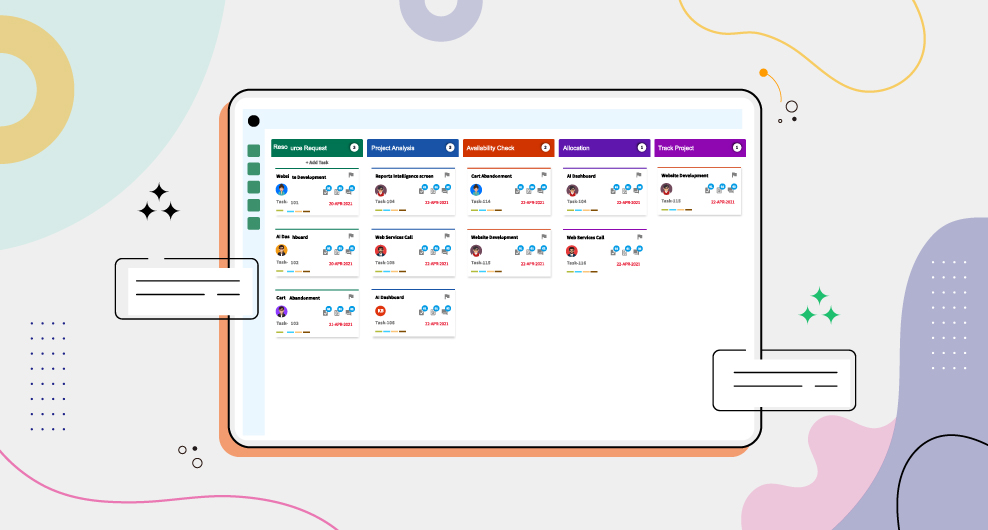Table of Contents
With a global increase in internet users projected to reach 5.3 billion by 2024, the digital landscape has reached unprecedented proportions. Embracing the technological norms and tools that have become integral to daily life, businesses find themselves at the forefront of adapting to the latest trends in the digital realm.
While the integration of digitalization has been witnessed in numerous organizations since the technological strides of the 1990s and 2000s, its full spectrum of potential applications and advantages has yet to be fully realized.
This article aims to delve deeper into the concept of digitalization, providing insights into how it can be harnessed to create enhanced and more financially lucrative opportunities for your business. Additionally, we will explore digitalization and offer valuable tips to kickstart your journey into the realm of digital transformation.
What is digitalization in business?
Digitalization utilizes digital technologies to transform a business’s internal processes and unlock new opportunities for revenue and value creation. This involves converting existing analog information into digital formats and optimizing specific operations using the latest technology and tools.
A prime illustration of successful digitalization is Netflix, originally a DVD rental company. By leveraging cutting-edge technology, harnessing data, and digitizing video content, Netflix revolutionized the industry, becoming a powerhouse with a staggering $31.6 billion in revenue in 2022.
Digitalization extends beyond simply eliminating paper and adopting computers for data logging – it encompasses an entire network of processes utilizing digital data to streamline tasks like invoicing, accounting, and inventory management through technology.
In today’s fiercely competitive business landscape, embracing digitalization is essential for saving time and avoiding unnecessary expenses. Whether transitioning from paper bills to e-invoices or revamping entire sales operations for online optimization, digitalization offers numerous benefits.
Before delving further, it’s crucial to distinguish between digitization, digitalization, and digital transformation.
- Digitization involves converting analog data and information into digital form, such as transforming a physical invoice into a PDF using a scanner.
- Digitalization is the process of shifting existing processes to digital technologies, enabling cost control, increased efficiency, and additional avenues for revenue generation, like implementing digital order fulfillment operations through technological tools and software.
- Digital transformation goes beyond digitization and digitalization, involving comprehensive changes that integrate digital technology into all aspects of a business. It transforms business models, operational processes, and cultures to leverage digitalization fully. An example is the adoption of cloud-based tools for remote work, showcasing the diverse ways successful digital transformation strategies can benefit businesses.
How businesses use digitalization
Businesses use digitalization to leverage digital technologies and transform their operations in various ways to enhance efficiency, competitiveness, and overall performance. Here are some common ways businesses employ digitalization:
Process Optimization:
- Automation: Digitalization involves automating routine and repetitive tasks, reducing the need for manual intervention. This leads to increased efficiency and accuracy in various business processes.

Customer Interaction and Engagement:
- Digital Marketing: Businesses use digital channels for marketing, advertising, and promoting their products or services. This includes social media marketing, email campaigns, and online advertising to reach a broader audience.
E-commerce and Online Presence:
- Online Sales: Digitalization facilitates the creation of e-commerce platforms, enabling businesses to sell products and services online. This broadens their customer base and allows for 24/7 accessibility.
Data Management:
- Data Digitization: Converting analog data into digital formats enables businesses to manage and analyze documents more effectively. This includes digitizing documents, records, and other relevant data.

Supply Chain Management:
- Digital Supply Chain: Integrating digital technologies into supply chain processes helps businesses optimize inventory management, logistics, and distribution. This leads to reduced costs and improves overall efficiency.
Customer Relationship Management (CRM):
- CRM Software: Digitalization involves the implementation of CRM systems to manage and analyze customer interactions. This helps businesses understand customer needs, personalize services, and improve customer satisfaction.

Financial Management:
- Digital Finance Tools: Businesses utilize digital tools for financial management, including online accounting software, digital invoicing, and electronic payment systems, streamlining financial processes.
Remote Work and Collaboration:
- Cloud Computing: Digitalization enables businesses to adopt cloud-based tools for remote work, collaboration, and file sharing. This enhances flexibility and allows employees to work from different locations.
Data Analytics and Business Intelligence:
- Big Data Analytics: Businesses leverage data analytics to gain insights into customer behavior, market trends, and overall business performance. This data-driven approach helps in making informed decisions.
Innovation and Product Development:
- Digital Prototyping: Digital tools assist in the creation of prototypes and simulations during the product development phase. This accelerates innovation and reduces time-to-market for new products.
Compliance and Security:
- Digital Security Measures: Digitalization involves implementing cybersecurity measures to protect sensitive data and ensure compliance with data protection regulations.
Employee Training and Development:
- E-learning Platforms: Businesses use digital platforms for employee training and development, offering online courses and resources to enhance skills and knowledge.
Best practices for successfully implementing digitalization
Implementing a digitalization strategy requires more than just scanning a few documents; it demands a well-thought-out plan and defined objectives. Before delving into the transformation process, it’s crucial to establish a clear strategy and set of goals.
Begin by asking yourself what specific objectives you aim to accomplish through digitalization. Only once you have a clear answer to this question should you proceed to identify the most effective ways to modernize your business processes.
Here are some key best practices to ensure the successful digitalization of your business:
Develop a Clear Strategy and Plan:
- Start with a comprehensive strategy and plan that outlines the roadmap for your digitalization efforts. Clearly define the steps, timelines, and milestones to guide the implementation process.
Invest in the Right Technology and Tools:
- Make informed investments in technology and digitalization tools that align with your digitalization goals. Ensure that the chosen solutions are scalable, compatible, and capable of meeting the evolving needs of your business.
Foster a Culture of Innovation and Experimentation:
- Cultivate a workplace culture that encourages innovation and experimentation. This mindset promotes the exploration of new ideas and technologies, fostering a dynamic environment conducive to digital transformation.
Continuously Evaluate and Improve Processes:
- Establish mechanisms for ongoing evaluation and improvement of digital processes. Regularly assess the performance of implemented solutions, gather feedback, and make necessary adjustments to enhance efficiency.
By adhering to these best practices, you can pave the way for a successful digitalization journey, ensuring that your business reaps the benefits of a well-planned and executed digital strategy.
Get started on a digital transformation with Yoroflow
Digitalization has the power to revolutionize a business’s processes, unlocking new opportunities and potential. It is an integral component of the broader digital transformation initiative, which aims to reshape organizations into fully digital entities.
By leveraging cutting-edge technologies and tools that simplify and streamline operations, business digitalization can bring about transformative change. It can eliminate costs, reduce errors, and enhance manual labor efficiency, allowing workers to redirect their efforts toward processes requiring human intervention.
For a business seeking profitability, embracing the latest technology is crucial. Failure to do so may result in being surpassed by competitors who are quicker to adopt digital solutions.
If you are in search of digital workplace tools, Yoroflow is the ideal platform. Explore the features of top-notch business process management templates and select one which suits your requirements.




